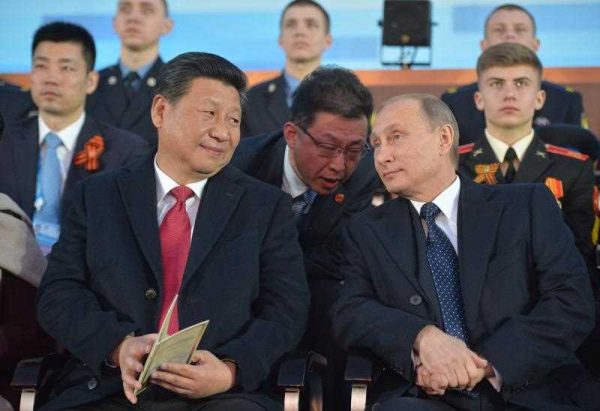While the major powers’ diplomatic exchanges roll on, finding common ground for collaboration remains as important as ever.
The new dynamics in world politics demand that each major power re-examines its own strategies to see what opportunities and challenges lie ahead. A balanced, pragmatic and issue-based foreign policy should be considered by all parties to maintain world order and prosperity.
The US has come to realise that emerging power groups — such as the BRICS countries (Brazil, Russia, India, China and South Africa) — are challenging US hegemony from different angles. It is time for US leaders to adapt to this new reality. They should not let domestic politics influence the foreign policy agenda too much, as it has in the recent case of the Asian Infrastructure Investment Bank (AIIB). Counterfactually speaking, had the US Congress not blocked the IMF reforms on voting shares since 2010, China should not have gained the legitimate reason to promote its AIIB proposal in the first place. The US should also accommodate the concerns of developing countries in the Trans-Pacific Partnership (TPP) negotiations by giving economic reassurances to its allies and partners.
The US and EU can also work together to consolidate and integrate the Transatlantic Trade and Investment Partnership with the TPP so that these two major trading and investment blocs can avoid counterproductive competition between them.
For its part, China should address international concerns about how it will use its increasing global clout by clarifying its goals and intentions. China also needs to recognise the importance of norms as well as interests. China can negotiate and bargain with the US and Europe for more power and influence on the world stage. However, solely focusing on interests without considering norms will make China more threatening and frightening in the eyes of others. It does not mean that China has to cave in to certain norms, such as unilateral intervention. Instead, China should consider using norms, not military might, to protect its interests. For instance, China should first make efforts to sign a code of conduct in the South China Sea with Southeast Asian countries. China’s rise will not be peaceful if there are continuous quarrels between China and its neighbours.
Although China and Russia seem to be moving towards closer relations — and both of them appear to be at odds with the West — it would be unwise to believe in an inevitable or natural alliance between these two nations against the US. Russia is clearly not willing to become a junior partner to a rising China. There are too many bilateral problems over issues such as influence in Central Asia, military technology transfers, Chinese migration to the Russian Far East and even regional leadership for this to be an attractive option for Russia. Despite arguably sharing a common interest in an anti-American-led order, a China–Russia military alliance is still far from a reality. And it will remain so unless the US and EU continue to push them both.
Trade is paramount for China and the EU. The EU is China’s biggest trading partner and China is the EU’s second largest. The recent strategic dialogue between the two aimed to enhance understanding and trust, as well as to promote trade and investment. But while economic interests will continue to dominate the bilateral relationship, both will need to explore other common areas of interest, such as piracy in the Gulf of Aden, climate change, connectivity and anti-terrorism. Human rights is one tough issue on which China can learn from EU’s experience of setting up institutional frameworks and developing norms of best practices.
European High Representative for Foreign Affairs Federica Mogherini agreed that the Ukraine conflict can only be resolved through diplomatic means. There is a strong need for the EU to formulate a common and consistent stand towards Russia. NATO should refrain from military activities that directly confront or provoke Russia while demonstrating its readiness for any potential conflict with a show of unity, strength and will. Europe is home to many important US allies. Despite the US efforts to rebalance to Asia, Europe — and its major collective security organisation NATO — remains a critical area of interest for the US. Cooperating with the United States, while playing an independent and balanced role in NATO, is the key for European countries to maintain security into the future.
It is essential to find common areas of interest for cooperation between China, Russia, the EU and the United States. All parties suffer from shared security issues, such as terrorism and nuclear proliferation, which offer the opportunity for collaboration. As the leading global players, the US, Russia, China and the EU need to set examples of good governance for the rest of the world.
Huiyun Feng is Senior Researcher at the Danish Institute for International Studies. She is the author of Chinese Strategic Culture and Foreign Policy Decision-Making: Confucianism, Leadership and War (2007) and the co-author of Prospect Theory and Foreign Policy Analysis in the Asia Pacific: Rational Leaders and Risky Behavior (2013).


World or international affairs, similar to domestic affairs, require both continuity and reforms. Both old and newly emerging powers must realize this fundamental point and act with this in mind to maintain what is good in the current system and to reform the part in the system that will make it work better, from efficiency, equity and/or effectiveness point of view. Both worlds should seek common ground in this spirit.